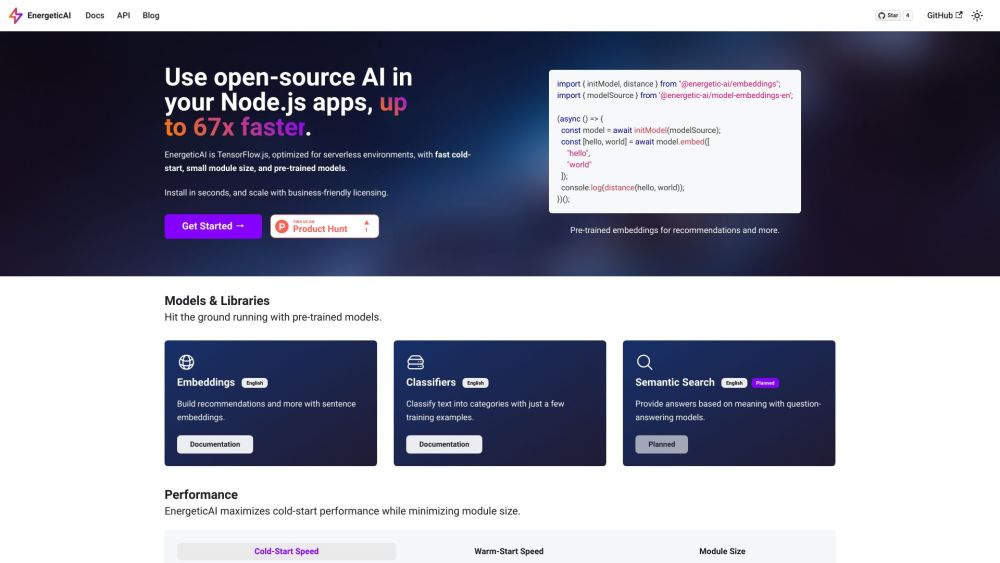EnergeticAI: Fast, Compact TensorFlow.js for Serverless AI Apps
EnergeticAI: Optimize serverless AI with TensorFlow.js—fast cold starts, compact size, and pre-trained models. Perfect for AI in Node.js apps!


What is EnergeticAI?
EnergeticAI is a streamlined version of TensorFlow.js designed specifically for serverless applications. It ensures quick initialization, a compact footprint, and includes pre-trained models, making it perfect for integrating open-source AI capabilities into Node.js projects.
How to use EnergeticAI?
EnergeticAI's Core Features
Optimized for serverless environments
Rapid cold-start performance
Minimal module size
Access to pre-trained models
Supports embeddings, classifiers, and semantic search
EnergeticAI's Use Cases
Creating recommendations using sentence embeddings
Categorizing text with minimal training data
FAQ from EnergeticAI
What is EnergeticAI?
EnergeticAI is a version of TensorFlow.js optimized for serverless environments. It features quick cold-starts, a small footprint, and comes with pre-trained models, ideal for adding open-source AI to Node.js apps.
How to use EnergeticAI?
To use EnergeticAI in your Node.js projects, you should install it from NPM, initialize the model using the provided APIs, and then utilize the pre-trained models for embeddings, classifiers, or semantic search as required.
How do I use EnergeticAI in my Node.js apps?
Install EnergeticAI from NPM, then initialize and configure it using the API methods provided. Use the pre-trained models for various tasks like embeddings, classifiers, and semantic search according to your needs.
What are the core features of EnergeticAI?
EnergeticAI is tailored for serverless functions with fast cold-start performance, a compact module size, and pre-trained models. It supports embeddings, classifiers, and semantic search.
What are the use cases for EnergeticAI?
EnergeticAI is suitable for tasks such as generating recommendations using sentence embeddings, classifying text with minimal data, and answering questions using semantic search models.